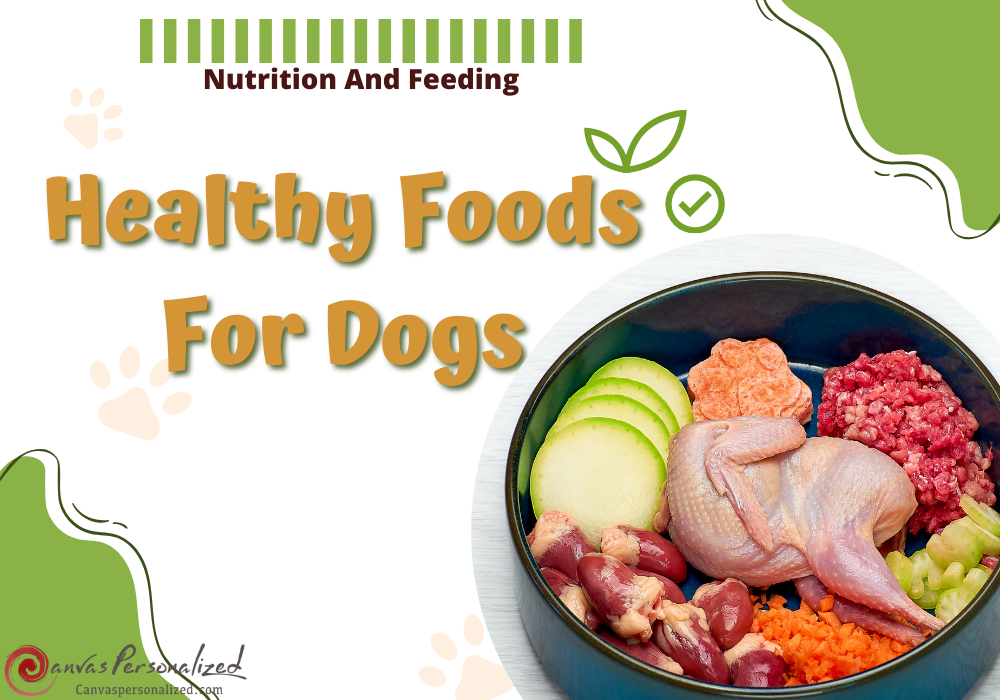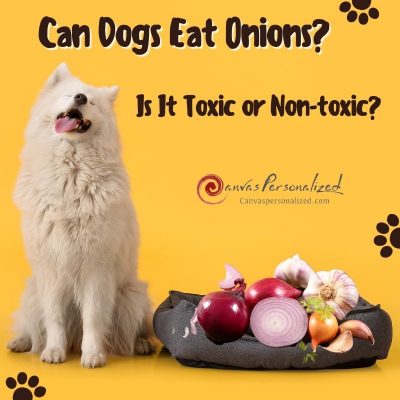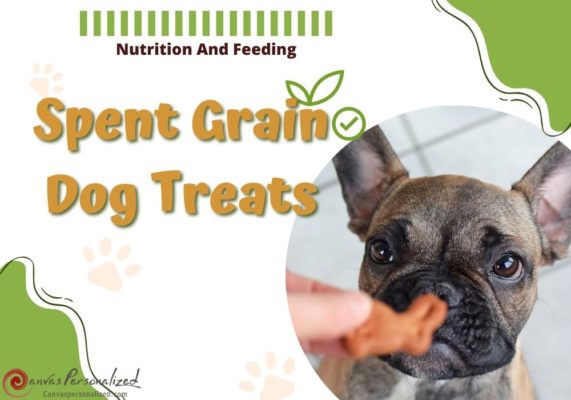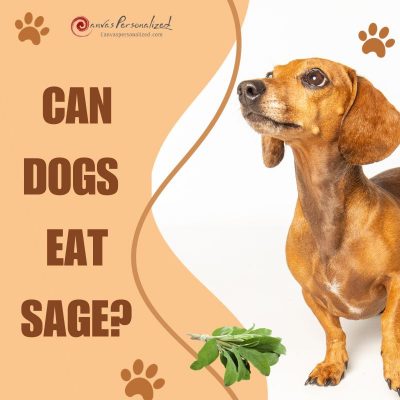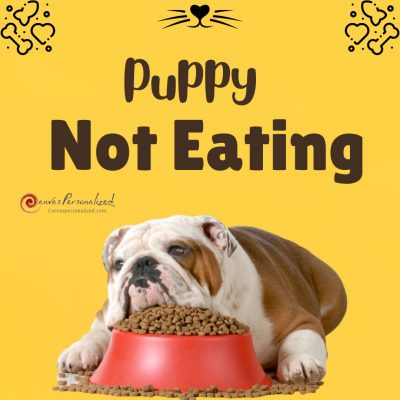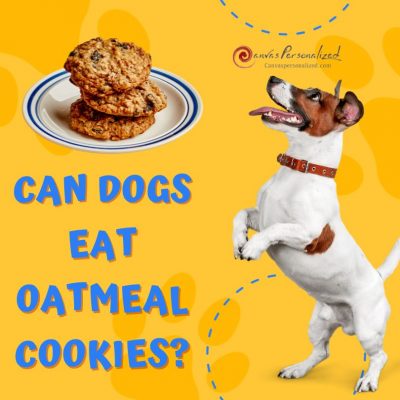It would be best to feed your dog the proper diet daily to keep it healthy and happy. While most commercial dog feeds are designed to meet a dog’s basic nutritional requirements, your dog may need more than that to maintain peak physical condition. In this post from the Canvas Personalized, we will cover the list of the best healthy foods for dogs that you can easily find in your kitchen.
List of 20 Healthy Foods For Dogs You Should Feed Your Dog
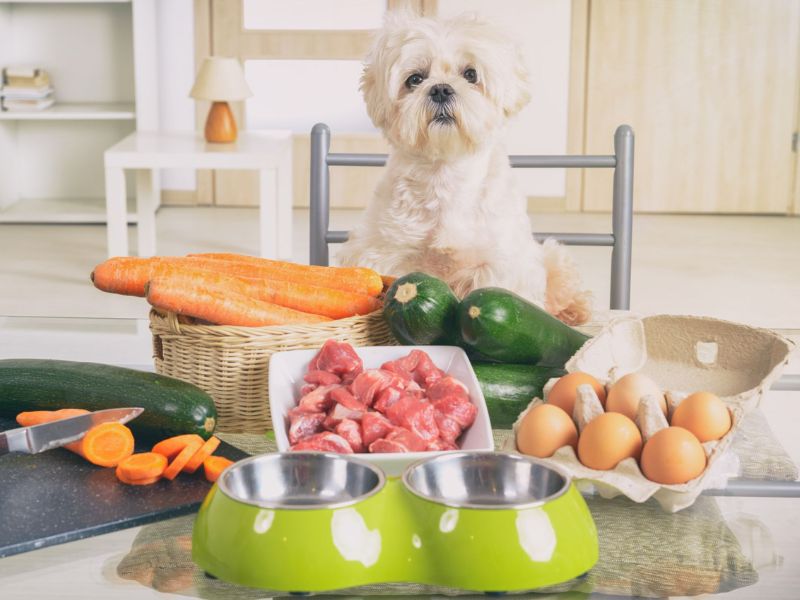
1. Kale
This supercharged green is an excellent source of vitamins A, E, and C. Kale aids the body’s natural detoxification processes and is an excellent source of antioxidants. Also, these healthy foods for dogs help reduce swelling and inflammation.
If your dog suffers from bladder stones or kidney illness, you should ask your vet whether it’s safe to add kale to your dog’s diet.
2. Carrots
Carrots are one of the favorite healthy foods for dogs because of their crunchiness and inherent sweetness. Carotenoids, fiber, vitamins C and K, and potassium in carrots will aid in blood coagulation to speed up the healing of wounds. Phosphorus is needed to make energy, which your dog needs to work out and train daily. These foods also have magnesium, manganese, and most B vitamins.
3. Pumpkin
Because of their high soluble fiber content and low-calorie count, pumpkins are great dog healthy foods for the digestive system. Moreover, pumpkins have a small amount of calcium and B vitamins, are low in sodium, and are high in carotenoids, potassium, and vitamin C.
Organic pureed pumpkin in cans is easily found at the supermarket, but ensure it’s pure by carefully reading the ingredient list to ensure no added sugar or spices.
4. Sweet potatoes
These tubers from the list of healthy foods for dogs have 150% more antioxidants than blueberries and are a great source of beneficial beta-carotene. Vitamin A from sweet potatoes is great for your dog’s heart, and the vitamin C content helps maintain its immune system.
5. Fish
Omega-3 fatty acids are abundant in oily fish, including herring, salmon, sardines, mackerel, and anchovies. Omega-3 fatty acids can help your dog’s skin, coat, and brain, and they can also reduce inflammation, which is a significant cause of arthritis pain and other long-term illnesses in dogs.
If your dog suffers from any of these ailments, it would be best to ask your vet before adding these fish to your dog’s diet. You might want to feed your dog different kinds of fish every day since fish is high in protein and has other essential nutrients.
6. Nori (dried seaweed)
As one of the most popular healthy foods for dogs, nori can be easily found at any grocery store and is commonly used to make sushi rolls. Nori also has soluble fiber (Galatians), vitamins (C, E, and the B complex), and minerals (zinc, copper, and the rest of the iron group found in food).
Despite being less well-known, nori also contains chlorophyll and a few sterols that may have a role in metabolic regulation. Including nori in your dog’s diet will help its immune system fight tumors. Remember to look for low-sodium nori to limit your dog’s salt intake.
7. Chia seeds
Any seed is an excellent source of foods healthy for dogs because they have properties similar to flax, including their ability to improve health and wellness.
Chia seeds do not require grinding before feeding your dog. Regularly adding chia seeds to your dog’s meal will keep it hydrated because they absorb liquids well and are high in protein, antioxidants, calcium, omega-3 fatty acids, and dietary fiber.
8. Quinoa
Quinoa is commonly known as a grain but is a seed in the same family as spinach. It is high in fiber, folate, magnesium, iron, phosphorus, and phytochemicals and has all eight essential amino acids. This makes it a complete protein.
Named “queen” among healthy foods for dogs, quinoa contains all eight essential amino acids, is high in fiber, folate, magnesium, iron, phosphorus, and phytochemicals, and makes for a complete protein. Suppose you add quinoa regularly to your dog’s meals. In that case, it will help lower your chance of developing diabetes because it is a powerful antioxidant and one of the few vegetable sources of complete proteins.
9. Yogurt
Probiotics (also known as “good bacteria”) are live cultures found in yogurt that aid in warding off harmful bacteria. Protein, calcium, phosphorus, vitamin B12, potassium, zinc, and iodine are just some nutrients it provides. Also, it has many other B vitamins, like riboflavin and pantothenic acid, which are needed for enzymes and cells to make energy and do other things.
10. Blueberries
Blueberry is a seasonal fresh fruit on the list of foods healthy for dogs to eat. Because of their phytochemicals and blue color, which come from the antioxidant-rich pigment anthocyanidins, blueberries are high in vitamin C, vitamin E, manganese, and fiber. They also have a lot of vitamin E and manganese.
Remember not to overfeed your dog blueberries because they may negatively affect it (and humans). So it would be better to offer your dog only small amounts weekly.
11. Bone broth
Bone broth, created by boiling animal bones and connective tissue for 24 hours or more, has been hailed for its numerous health advantages for most dogs. The broth is a healthy, protein-rich treat rich in anti-inflammatory amino acids, vitamins, and minerals like calcium, magnesium, and phosphorus.
Other components in bone broth, including glucosamine and chondroitin, have also been demonstrated to aid dogs’ joints. These substances help keep your dog’s joints healthy and stop or slow the development of joint diseases like arthritis and hip dysplasia.
Remember to give the broth to your dog in very modest amounts at first (a few teaspoons) and put some in a bowl for your dog, or mix it with their regular food.
12. Eggs
Eggs are a great source of foods healthy for dogs, including protein, amino acids, vital fatty acids, vitamins, and minerals. There are several ways in which eating eggs can help your dog’s health, including its skin and coat. You can give them eggs to help dogs that aren’t feeling well or are healing from stomach problems.
You can give your dog scrambled or hard-boiled eggs on their own. Moreover, adding eggs as a protein-packed topping to its regular diet would be best. Start with a small amount and increase the serving size gradually.
13. Ginger
Ginger is a relative of turmeric and comes from the plant’s root (another superfood ingredient). Because of its anti-inflammatory characteristics, ginger may help treat various dog conditions, from cancer to arthritis. Additionally, ginger is a natural remedy for nausea, GI distress, and abdominal bloating.
Since ginger is potent in dog healthy foods list, only a tiny amount should be mixed into your dog’s food gradually, starting with roughly half the recommended amount. If your pet has a condition like diabetes, for example, you should consult with your vet before giving ginger since it may have a negative effect and lower blood sugar and blood pressure.
14. Olive oil
Olive oil contains antioxidants and Omega-3,6 fatty acids, which protect against free radical damage and oxidation. Olive oil’s anti-inflammatory properties also aid in lowering the likelihood of developing cancer, cardiovascular disease, or diabetes in most dogs. Its oleic acid content can improve the health of your dog’s coat and skin.
Use only extra virgin olive oil to enrich your dog’s nutrition. Just a few drops over their meal will do the trick. Although it is one of the healthy foods for dogs, daily intake should be capped at one teaspoon per 20 pounds of body weight.
15. Parsley
More than the “king” of garnishes, curly-leafed parsley is a superfood that contains antioxidants, vitamins A, C, and K, and folic acid. Parsley is also a known anti-inflammatory and can improve your dog’s immune system, joints, kidneys, and urinary tract; as an added benefit, it also freshens your dog’s breath.
Parsleies are foods healthy for dogs and are found in most kitchens. Add a few pinches of chopped parsley to your dog’s food a few times a week. There’s an entirely different kind of parsley, spring parsley, that you should not give to dogs due to high furanocoumarin levels.
16. Turmeric
Ground turmeric is a golden spice that’s been used for centuries, but recently, it has emerged as a superfood for most dogs. The health-boosting component of turmeric, called curcumin, has myriad health benefits, including antioxidant, anti-inflammatory, antiviral, antibacterial, and antifungal properties. Turmeric is used to improve arthritis symptoms, fight cancer, support the liver, and improve gastrointestinal function in most dogs.
To make your dog able to absorb the curcumin, you must specially prepare turmeric, combining it with a healthy oil like coconut oil or olive oil to create a paste for its daily meal.
17. Watermelon
Many melons are considered dog healthy foods with their exceptionally nutritious antioxidants, including lycopene, which may help prevent cancer. Watermelon contains amino acids, vitamins A, B, and C, potassium, and magnesium.
Watermelon is also a great source of fiber, which supports dogs’ intestinal health, and it contains a ton of water, which is good for the kidneys and liver. Remember to feed your dog in small amounts and to remove any rind or seeds that may cause intestinal blockage.
18. Purple Cabbage
It’s common knowledge that most dogs should get their daily dose of leafy greens, but what about purple cabbage? The antioxidant content of purple cabbage is very high, with bright colors that also tend to have high concentrations of those nutrients.
19. Coconut Oil
This trendy superfood shows up in the most unlikely places: dog food. It has been shown to benefit the skin and hair of dogs, help with digestion, and calm allergic reactions when given to their food. Since coconut oil is high in calories and could cause a spike in cholesterol if consumed excessively, it is important to discuss appropriate dosing with your veterinarian.
20. Salmon
Salmon is fantastic because of its abundance of healthy omega-3 fatty acids. These fats improve immunity and are great for your dog’s coat and skin.
Salmon or other oily fish as a source of protein in customized diets, alternating with different meats. However, you should not overfeed your dog if you already give it fish oil as a supplement because fatty acids can be toxic in high doses.
What To Look For In Making Healthy Food For Dogs Homemade
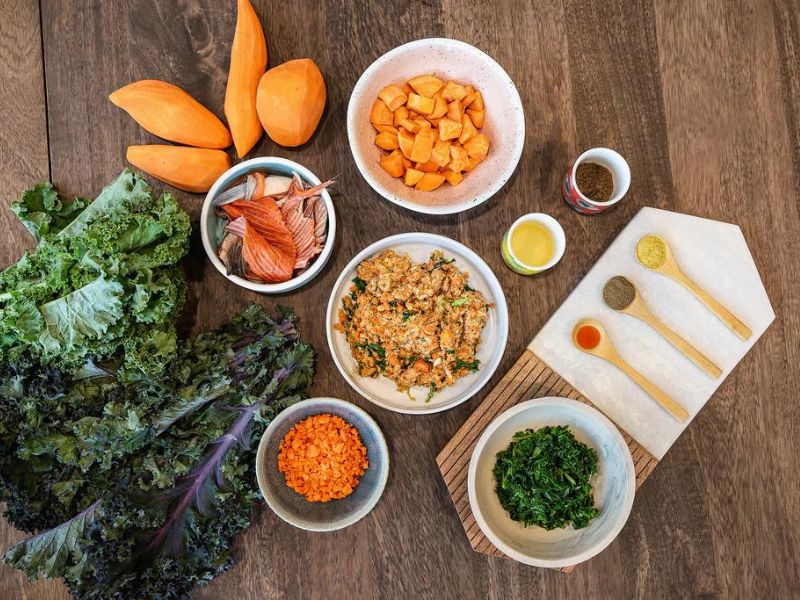
For numerous reasons, some dog owners have begun experimenting with healthy food for dogs homemade, including avoiding allergens, saving money, and having complete control over their diet. Whatever your motivation, making your dog’s food from scratch may be a rewarding experience for you and your dog. However, there are a few things to think about before starting on the path of making homemade dog food.
Everything you wanted to know about dog-balanced nutrition and what to look for in a portion of dog healthy foods homemade is laid out here for you.
Proper Nutrition for Dogs
Homemade and commercial diets share the same fundamentals for success regarding nutrient properties. A dog’s diet regularly must provide all the nutrients it requires.
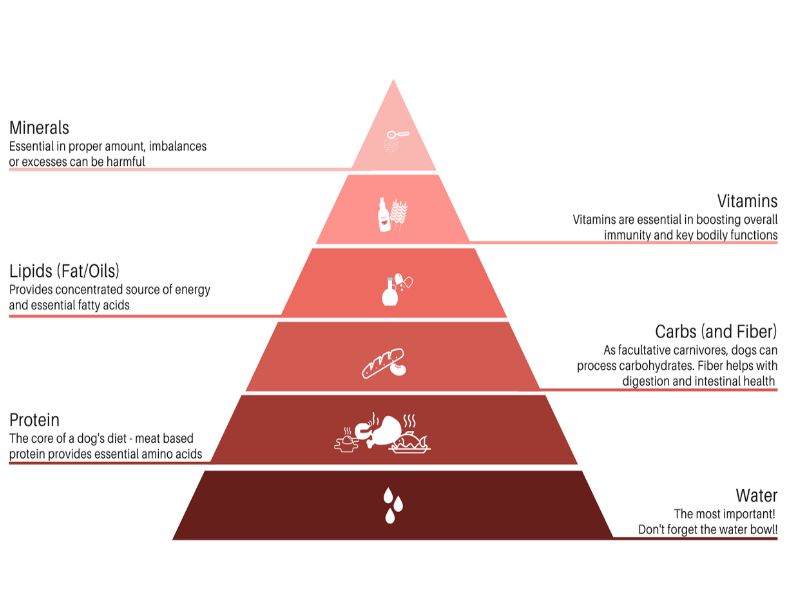
Proteins, fats, carbohydrates, vitamins, minerals, and water all have their role in a dog’s well-balanced diet daily. Understanding how each nutrient is used in a dog’s body, knowing the mechanisms by which it is used, and knowing how much of each nutrient is needed for a healthy dog at each life stage is quite complex, but knowing the essential ingredients makes it seem simple and easy.
Even though the components in homemade dog food are high quality, if the diet isn’t balanced correctly, the dog will be deficient in some essential nutrients. It isn’t easy to make your dog feed with all the necessary ingredients. So be careful in choosing and making food for dogs homemade:
All dog foods should meet AAFCO requirements.
Animal Feed Ingredients Definitions (AFFCO) is a private, non-profit organization. AAFCO-approved animal feed and pet food products contain the necessary analyses and nutrients. AAFCO’s nutritional adequacy statement makes it easy for pet parents to choose nutritious foods for their dogs.
Follow the standards for nutrient content in pet food.
According to the dog’s daily caloric need, six nutrients are crucial to a dog’s health and well-being. This includes an appropriate diet for a dog that should supply all the energy a dog needs.
- Water
- Carbohydrates (including fiber): Carbohydrates (such as rice, pasta, and potatoes) can make up 50% of your dog’s meal. Peas, green beans, and carrots all contain between 2.5% and 4.5% fiber.
- Vitamins
- Minerals
- Fat: 55% fat or more, typically in the form of vegetable oil
- Protein: 10% or more protein, like skinless chicken breasts, fish fillets, or lean beef
Several factors affect how much energy a dog needs. It’s crucial to provide your dog with the amount of food and water they need to maintain its active lifestyle. Among these factors are the following:
- Growth
- Reproduction
- Groups of Adults (young, middle, and older)
- Activity level
- Breed
- Medical and behavioral conditions
Fats and proteins, then carbs, make up most dietary energy. The daily food quantity and quality depend on the diet’s energy density. The food you feed your dog must sustain its energy needs regularly.
A well-balanced dog’s diet allows the body’s many systems to make the most of its nutrients. Without sufficient energy, your dog’s digestive system won’t be able to process the food and acquire the nutrients it needs.
How To Prepare Vet-Approved Homemade Food for Dogs
The first thing you should do if you want to begin preparing meals at home for your dog is to consult with your vet, who specializes in canine nutrition, or a veterinary nutritionist.
As one of the best dog care tips, cooking your own recipes and foods for your dog is a great way to make it happier and healthier. However, if you cook for your dog at home, you might as well use a complete and balanced recipe. After settling on a recipe with the help of your vet, you can commence cooking. Moreover, a food scale, food processor, saucepans, and storage bags or containers for individual servings should all be ready before you start cooking.
- Get your hands on high-quality, locally sourced products that haven’t been preserved, seasoned, or overly processed.
- Gather all of your foods in an area free of anything that could be harmful to your dog.
- Get out a measuring cup and spoon. If you want to be precise, I recommend using a food scale.
- Cook according to the recipe and the vet’s instructions.
- Supplements and meals should be mixed well, ideally with a food processor.
- Put perishables in containers and put them in cold or frozen storage.
- If stored properly, food in the refrigerator can be consumed safely for up to four days.
- The shelf life of frozen dog food is around two months. Freezing homemade dog food for more than six months is not recommended.
- Many homeowners prefer to cook large quantities and store the finished meals in containers in the fridge or freezer. It could save you both time and money! However, you may want to start with smaller batches to evaluate how your dog reacts to the homemade food.
When switching your dog to a homemade diet, keep a close eye on it after it finishes the meal. At the very least once a week, you should weigh your dog. If your dog is allergic to any components, it could have stomach issues like vomiting and diarrhea. Hence, you should consult your veterinarian if you observe any abnormal changes.
Human Foods Good For Dogs
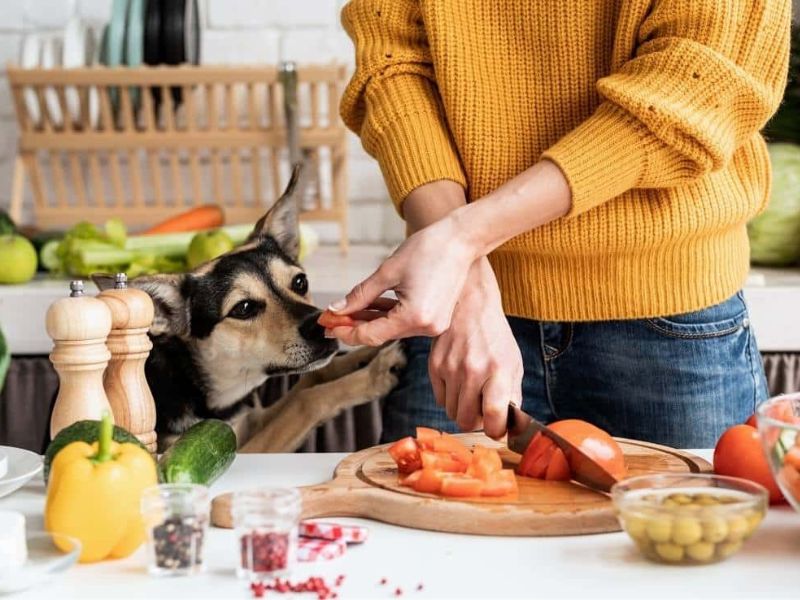
1. Rice
Rice is a human food that is both healthy and suitable for feeding your dog regularly. Rice can be used as a weight-loss food because it contains a lot of starch. Because starch makes your dog feel fuller for longer, it can help them avoid overeating and keep their weight in check.
Vitamins B3 and D help maintain healthy red blood cells and are also present in rice. Since it contains neither cholesterol nor sodium, it is ideal for regular use. After feeding your pet rice, make sure to provide plenty of water.
2. Apples
Dogs can eat apples and benefit significantly from snacking on this fruit. It is an excellent source of antioxidants because of its high vitamin A and C content. In addition to being crunchy enough to clean your dog’s teeth, apples offer a high fiber level that can help digestion. Apples also protect your dog’s skin and coat with the help of skin and coat supplements.
3. Tossed with Green Peas
Green peas are among the healthy foods you may provide to your dog due to their high nutrient content. For these reasons, green peas are an excellent legume option for dogs with digestive sensitivities.
The benefits of feeding your dog a diet high in fiber extend far beyond simple weight control. Moreover, green peas can be abundant in protein and vitamins A, B1, B6, C, and K. The carbohydrate content of this legume is high enough to keep your dog busy all day long.
4. Peanuts and peanut butter
Your pet friend may have protein needs on occasion. Both are high in protein and provide significant amounts of vitamins B and E. Your dog can benefit from the beneficial fats and niacin in raw, unsalted peanut butter, among other nutrients. To control your dog’s weight, only give it a few peanuts or a tiny amount of peanut butter once in a while.
5. Oatmeal
Oats are a type of whole grain that contain a lot of carbohydrates. Oatmeal is an excellent source of soluble fiber, Vitamin B5, Omega 6 fatty acid (which is good for your dog skin), and carbs.
Moreover, oatmeal can provide your wheat-allergic pet with the fiber they need to have a regular potty. That’s why it’s one of the most widely used components in foods healthy for dogs.
6. Bran Cereal
Feeding your dog bran flakes is a terrific idea to maintain a healthy digestive system. In addition to boosting your dog’s energy and reducing blood pressure and cholesterol levels, these foods can assist in treating cardiovascular disease.
The laxative impact of bran flakes can be reduced by serving them in moderation, avoiding those with added sweets and preservatives, and softening them with warm water before adding them to either dry or wet foods.
7. Cheese
If your dog isn’t lactose intolerant, cheese is an excellent source of protein, fat, and vitamins A, B6, and D. The calcium, iron, and other nutrients it provides can help strengthen your dog’s skeleton.
8. Popcorn and Corn
Yes, dogs can eat popcorn. Popcorn and corn are healthy options for dog treats because they are high in carbs and contain some protein, iron, thiamine, and riboflavin in smaller amounts. These minerals support healthy eyes and digestive systems. Avoid giving your dog popcorn that has been seasoned with salt or butter.
9. Chicken
Instead of feeding beef, chicken is a far better option because prepared plainly and without added fat. Lean protein, Omega-3 fatty acids, and vitamin B are all abundant in chicken, making it a top food choice for healthy foods for dogs.
Like the other human foods that can be fed to dogs, the chicken should be boiled it. Do not give your dog any raw meat or bones since they could cause a choking or intestinal obstruction.
10. Milk
Dogs can drink milk. But be careful. Some dogs have trouble digesting milk because of lactose intolerance. Milk in moderation is fine for dogs, but owners should be aware of the signs of lactose intolerance and may wish to stick to water.
11. Pork
Pork is safe for dogs to eat. Compared to other types of meat, pork has more calories per pound and is easier to digest because of its abundance of amino acids. Additionally, pets may be less prone to experience an allergic reaction to pork than to other proteins.
12. Shrimp
Dogs can eat shrimp. Most dogs can eat a small amount of shrimp occasionally, but only if they are thoroughly cooked, and all of the shell (including the tail, head, and legs) is removed. Shrimp are minimal in fat, calories, and carbs while rich in antioxidants, vitamin B-12, and phosphorus.
13. Tuna
Dogs can eat tuna in small amounts. Fresh, cooked tuna is rich in omega-3 fatty acids, which are suitable for your dog’s heart and eyes in moderation. At the same time, canned tuna should be careful because it contains mercury and salt. Occasionally feeding tuna or tuna juice from a can is fine for dogs so long as it is not seasoned and is prepared in water rather than oil.
14. Turkey
Turkey is safe for dogs to add to the list of dog healthy foods if the meat is prepared without the skin and fat. Keep an eye out for bones; splintered bones from birds can cause intestinal obstruction or even tears if eaten raw. Meat that has been over-seasoned or cooked with a lot of onions or garlic should not be fed.
15. Wheat/grains
Wheat and other grains are safe for dogs to eat. Grain-containing foods are acceptable for canine diets. Cereals like wheat and corn are abundant in protein, healthy fats, and dietary fiber. However, if your dog suffers from allergies, it’s probably best to avoid grains. For advice, consult your pet’s veterinarian.
Best Foods For Dog Allergies
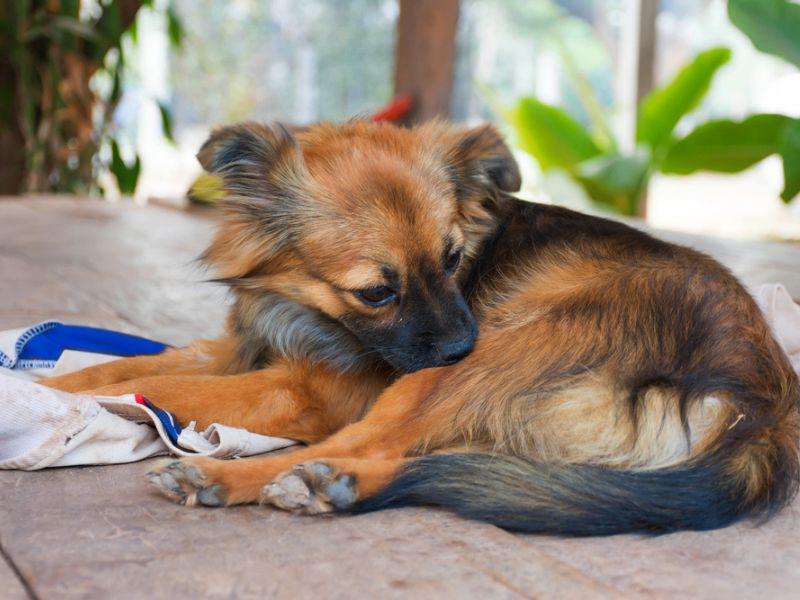
If your dog has food sensitivities, you can give him either food with few ingredients or food that won’t bother allergies.
Limited Ingredient Food
A limited-ingredient diet may help you find the offending substance. After that, you can put your dog on a restricted diet to help it avoid it. You can select a limited-ingredient meal for your dog that fits its preferences, thanks to the variety of options available.
Hypoallergenic Food
Diets formulated for hypoallergenic dogs come from novel protein sources. Proteins are used in many hypoallergenic pet diets, making the original allergen “invisible” to your pet’s immune system. One type of protein that might be present in hypoallergenic foods is hydrolyzed soy protein.
If your pet has food allergies, your veterinarian may recommend a special hypoallergenic diet.
>>>Find out the specific kinds of dog food for skin allergies that you should avoid!
Foods For Dogs To Avoid

Almonds
Almonds are not safe for making dog healthy foods. Although almonds are not harmful to dogs in the same way as macadamia nuts, they pose a severe hazard if not digested thoroughly before being fed to your pet. Almonds, especially those that have been roasted and salted, pose a serious risk to dogs with heart conditions because of the water weight they can produce.
Chocolate
Chocolate is not safe for dogs to eat occasionally, so please don’t give any to your dog. Despite popular belief, this is not a fabrication. Methylxanthines, found in chocolate, are stimulants that can cause a dog’s metabolism to cease.
Any amount of chocolate, incredibly dark chocolate, can make your dog sick to their stomach and throw up. Toxic levels can cause convulsions, cardiac irregularities, and even death. Remember to keep your dog away from any chocolate treats.
Cinnamon
Cinnamon is not safe for adding to the list of foods healthy for dogs. The oils in cinnamon can irritate the tongue in dogs, which can make them unwell. If given excessively, it can cause diarrhea, vomiting, an abnormally high or low heart rate, and even liver disease in dogs by lowering their blood sugar too much. Cinnamon powder can cause a person to have trouble breathing, cough, and even choke if inhaled.
Garlic
Garlic is not safe for dogs to eat. Garlic belongs to the Allium family with onions, leeks, and chives, but its toxicity to canines is five times higher. Pale gums, a rapid heart rate, extreme weakness, and collapse are some of the adverse effects of anemia that garlic can cause in dogs.
To be sure your dog isn’t suffering from delayed signs of garlic or onion poisoning, keep an eye on them for a few days after eating these foods.
Ice cream
Dogs shouldn’t have ice cream, although it is delicious and refreshing. It’s not a good idea to give any to your dog because of the high sugar content. The lactose in milk might cause digestive problems for most dogs. Instead of giving your dog ice cream, try feeding it frozen fruit chunks like strawberries, raspberries, apples, and pineapples.
Macadamia nuts
Macadamia nuts are toxic to dogs and should never be given to a dog. These are among the most poisonous foods for most dogs. Macadamia nuts, which are in the family Protaceae, can make you sick to your dog’s stomach or cause your dog’s fever to rise, make him tired and unable to move, and make you tired. They can even affect the nervous system, which is bad enough.
Other foods you should keep in mind and never add to the healthy foods for dogs:
- Fatty meats
- Cured meats, like sausage, bacon, and hotdogs
- Fried chicken
- Raw pork
- French fries
- Pastries, cookies, cakes, and other sugary baked goods
- Grapes and raisins
- Fast food
- Chocolate
- Coffee and caffeine
- Alcohol
- Avocado
- Salty snack foods
- Yeast dough
- Macadamia nuts
- Citrus
- Xylitol (sweetener)
Things To Keep In Mind
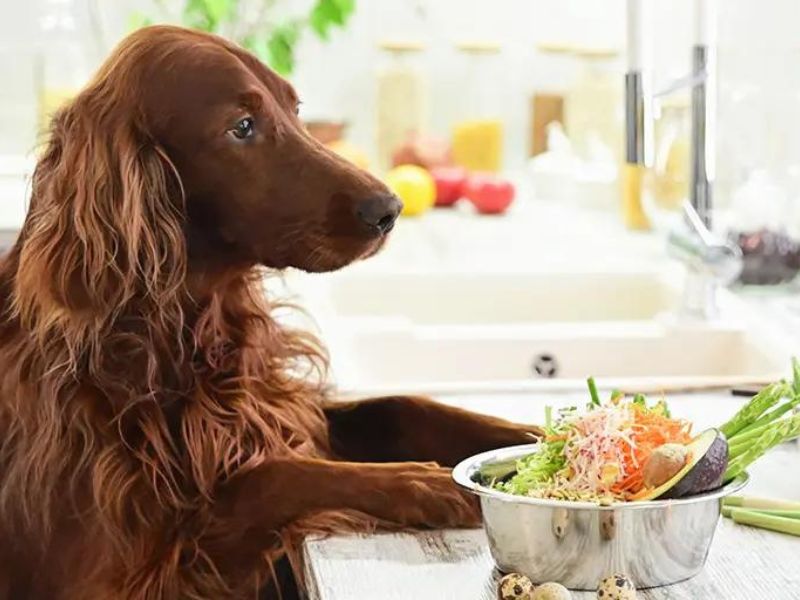
Keep in mind a few things below to create a list of healthy foods for dogs:
- No single food has magical properties or can instantly make a dramatic difference in your dog’s or your life. Daily feedings of high-quality, fresh dog healthy foods may be the most effective “superfood” available.
- Even though you can easily find these healthy foods for dogs in your kitchen, if the way you prepare or cook them is wrong, they will be harmful to your dog.
- Even though these foods are found in many commercially prepared dog diets, the high heat and pressure required to convert them into inert kibble destroy their nutritional content. It can be replaced by the potentially hazardous chemicals formed during cooking.
- Not all healthy foods are suitable for dogs. Some people believe that superfoods such as garlic, macadamia nuts, and dark chocolate are beneficial and safe for humans, yet feeding them to dogs can be fatal. Before feeding something to your dog, make sure it is safe.
- Food should be given to your dog occasionally and in small amounts. Supplemental feedings should make up no more than 10% of your dog’s diet.
- Obesity and nutritional imbalance can result from overeating snacks and desserts. So it would be best to introduce new foods to your dog gradually. Stop giving the food to your dog and visit your vet if they develop diarrhea, vomiting, or excessive gas.
A good diet is essential for the general well-being of your dog. You can help keep your furry companion healthy and happy for years to come by integrating some of the healthy foods for dogs that we have covered in this post from the Canvas Personalized Blog. As every dog is unique, you need to talk to your vet to choose the proper diet.


